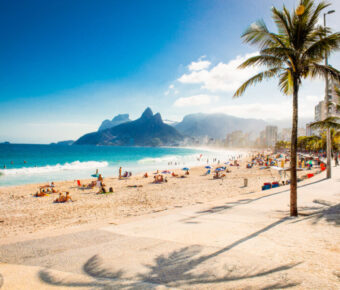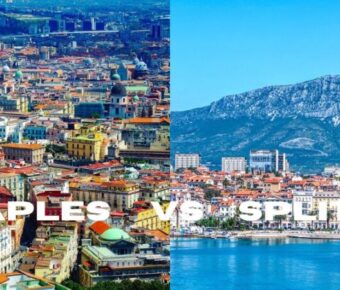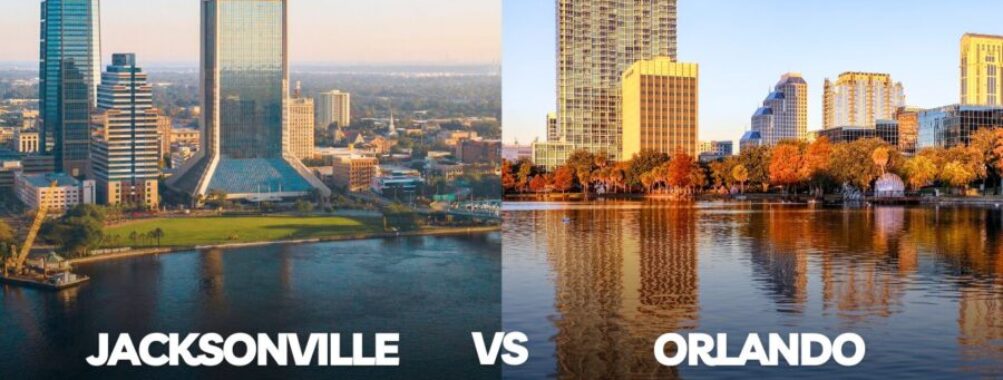
Jacksonville vs Orlando: 5 Key Differences to Know Before Your Florida Trip
Looking to choose between Jacksonville and Orlando for your next Florida adventure? These two cities offer very different experiences for visitors and residents alike. Orlando dazzles with theme parks and tourist attractions, while Jacksonville charms with its laid-back vibe and oceanfront location.
Jacksonville offers lower population density, less tourist traffic, and direct beach access that Orlando simply can’t match. The largest city by area in Florida, Jacksonville, provides a more relaxed atmosphere with its sprawling layout and coastal location. Many find its homey feel appealing compared to Orlando’s bustling tourist centers.
Orlando shines as a family vacation destination with world-famous attractions but has drawbacks like crowded areas and tourist-focused development. Jacksonville’s more authentic Florida experience includes beautiful beaches and typically lower living costs. Your perfect choice depends on whether you prefer Orlando’s entertainment options or Jacksonville’s more relaxed coastal lifestyle.
Table of Contents
- Geographic Overview
- Location in Florida
- Climate Comparison
- Cultural and Historical Highlights
- Historical Landmarks
- Cultural Scenes
- Economic and Employment Landscape
- Job Markets
- Business Opportunities
- Leisure and Recreation
- Beaches and Parks
- Entertainment Venues
- Outdoor Activities
- Tourism and Attractions
- Theme Parks and Resorts
- Unique Local Attractions
- Cost of Living and Lifestyle
- Housing and Real Estate
- Education and Healthcare
- Shopping and Dining
- Transportation and Mobility
- Public Transportation
- Roads and Highways
- Frequently Asked Questions
- What factors contribute to the difference in cost of living between Jacksonville and Orlando?
- How do the crime rates in Jacksonville compare to those in Orlando, and how does this impact residents?
- How do Jacksonville and Orlando differ regarding job opportunities and economic growth?
- Can you describe the cultural and entertainment distinctions that set Jacksonville apart from Orlando?
- What are the advantages of choosing a 55-plus community in Jacksonville over Orlando?
- Which city, Jacksonville or Orlando, offers young professionals a higher quality of life?
- Book Your Dream Experience
- More Travel Guides
Geographic Overview
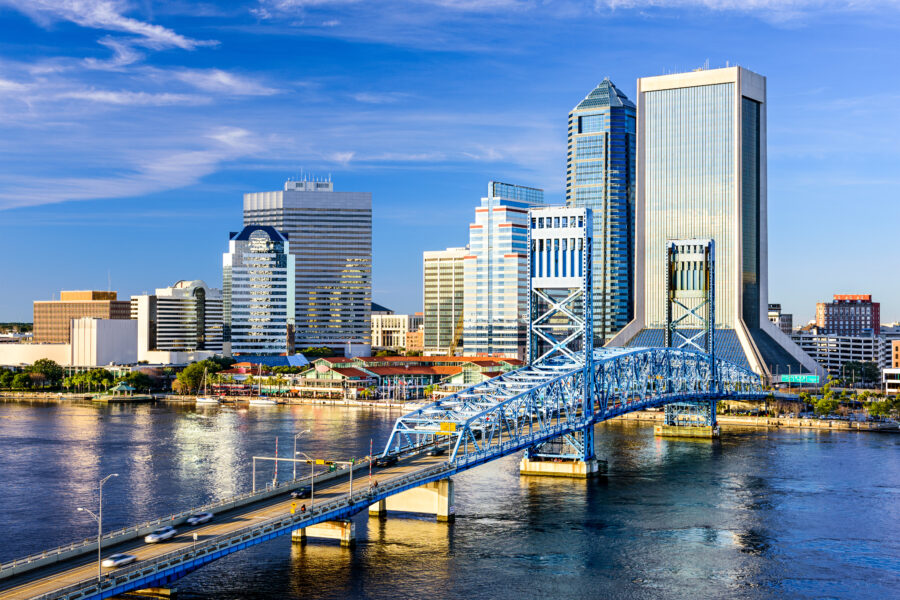
Jacksonville and Orlando offer distinctly different geographic experiences within Florida. Jacksonville provides coastal living with Atlantic beaches, while Orlando sits inland, surrounded by lakes and attractions.
Location in Florida
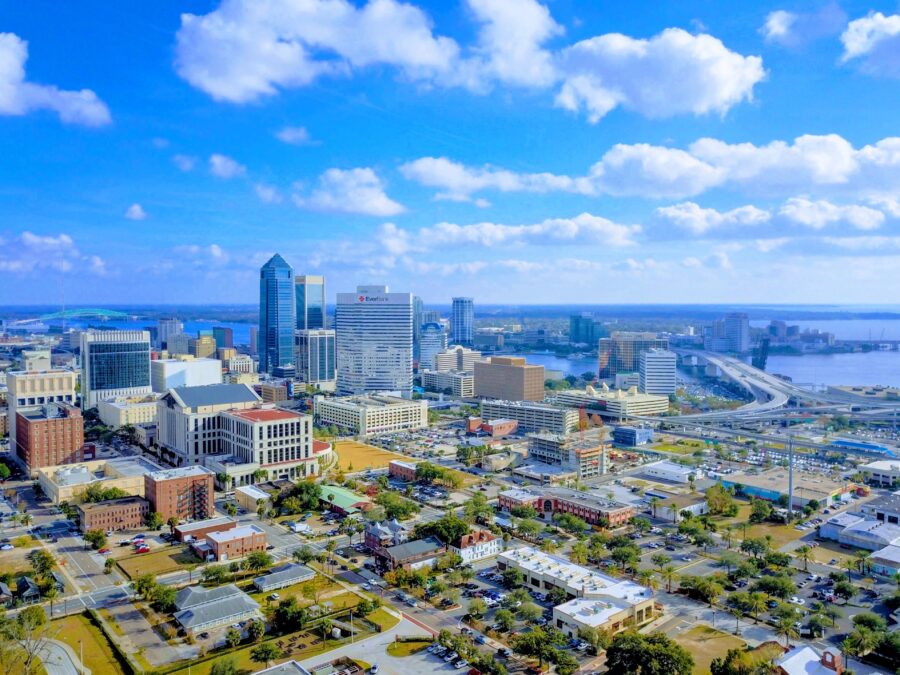
Jacksonville is located in northeastern Florida, positioned right on the Atlantic coast. It’s the largest city by land area in the continental United States, covering a massive 875 square miles. The St. Johns River runs through the city’s heart, creating a natural dividing line.
Orlando, in contrast, is located in central Florida, about 50 miles from the Atlantic Ocean. It’s an inland city surrounded by numerous lakes—over 100 within city limits! This inland position has helped Orlando develop as a central tourism hub.
The distance between these cities is about 140 miles, roughly a 2-hour drive. Jacksonville is a gateway to Georgia and the southeastern states, while Orlando is Florida’s central crossroads.
Climate Comparison
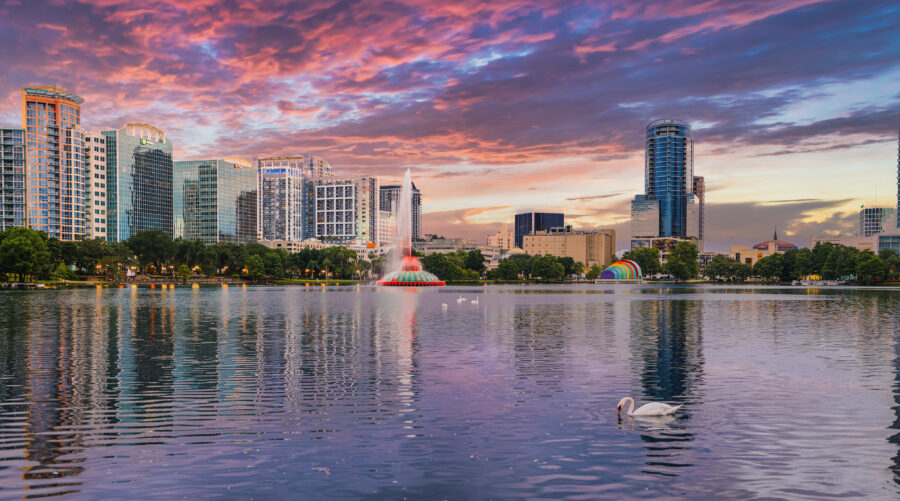
Both cities share Florida’s famous warm weather but have some key differences. Jacksonville experiences slightly more seasonal variation due to its northern location. Summer temperatures typically reach the low 90s°F, while winter days average around 65°F.
Orlando stays warmer year-round, with summer highs regularly hitting the mid-90s°F. Winter temperatures rarely drop below 50°F, making it a popular escape for northern tourists during colder months.
Rainfall patterns differ, too. Jacksonville receives around 52 inches of annual rainfall, spread fairly evenly throughout the year. Orlando gets slightly more at 55 inches, but with a more defined rainy season from June through September.
Both cities have high humidity levels, though Jacksonville gets more relief from coastal breezes. Orlando’s inland position creates a stickier feel, especially during summer months.
Cultural and Historical Highlights
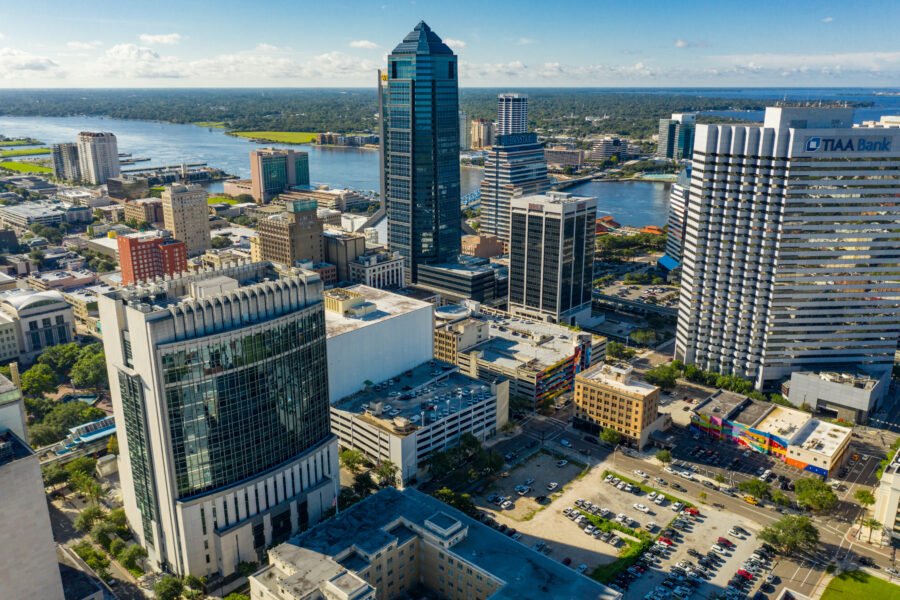
Both Jacksonville and Orlando offer rich cultural experiences and fascinating historical sites that reflect Florida’s diverse heritage. Each city has its unique character shaped by different historical influences and modern cultural developments.
Historical Landmarks
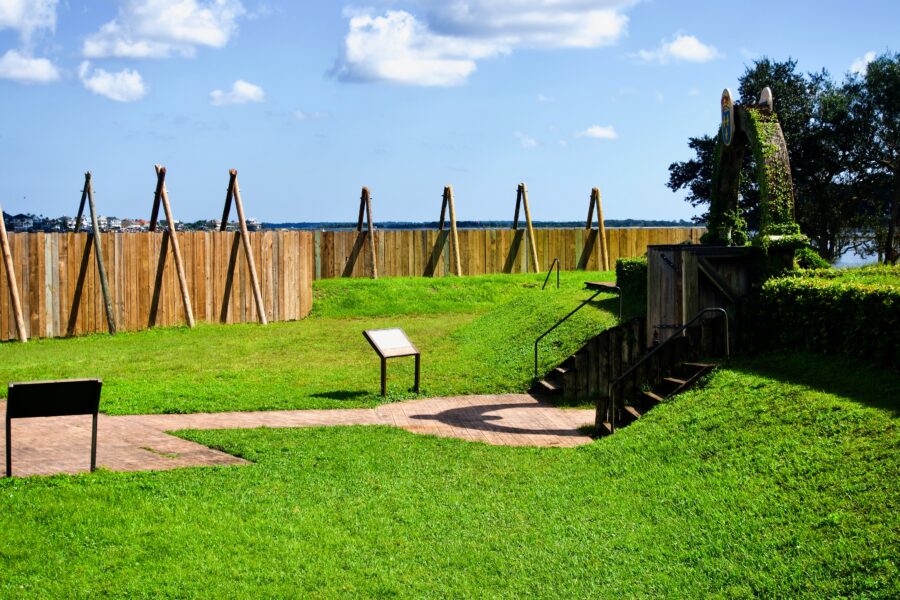
Jacksonville boasts a more extended history than Orlando, giving it a more profound historical richness. The city’s heritage is beautifully preserved at the Kingsley Plantation, one of the last plantation houses in Florida, dating back to the early 1800s. History buffs shouldn’t miss Fort Caroline National Memorial, commemorating the 16th-century French settlement.
In Orlando, the city has gems like the Henry P. Leu Gardens with its historic home from the 1880s. The Orange County Regional History Center, housed in a historic courthouse, offers fascinating exhibits on Central Florida’s journey from its Native American roots to the tourism boom.
Downtown Orlando’s Lake Eola Park features the iconic Sperry Fountain, a city landmark since 1957. While Jacksonville might have more historical depth, Orlando has done an excellent job preserving its younger historical sites.
Cultural Scenes
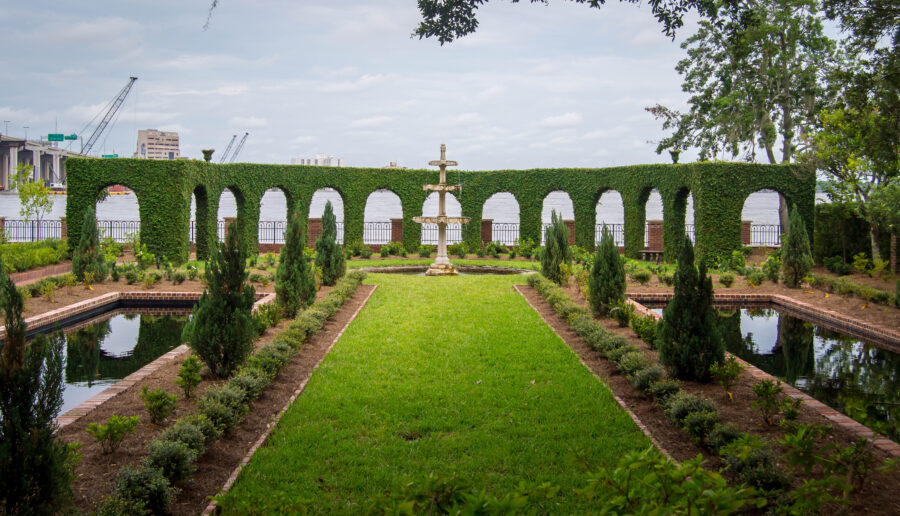
Jacksonville’s cultural scene has a more laid-back, homey feel than Orlando’s international flair. The Cummer Museum of Art & Gardens in Jacksonville houses an impressive collection spanning from ancient times to the present. The Florida Theatre, a restored 1927 movie palace, hosts a variety of performances throughout the year.
Orlando’s cultural landscape is incredibly diverse, reflecting its international population. The Dr. Phillips Center for the Performing Arts brings world-class performances to the city. The Mills 50 district showcases Orlando’s vibrant Asian influence with authentic restaurants and cultural celebrations.
Both cities offer thriving arts districts. Orlando’s Winter Park neighborhood is known for its upscale galleries and annual arts festivals. Jacksonville’s Five Points and Riverside areas feature independent galleries, street art, and a bohemian atmosphere that attracts creative types.
For music lovers, Jacksonville’s Florida Jazz Festival and Orlando’s various Disney-sponsored cultural events provide different but equally enjoyable experiences throughout the year.
Economic and Employment Landscape
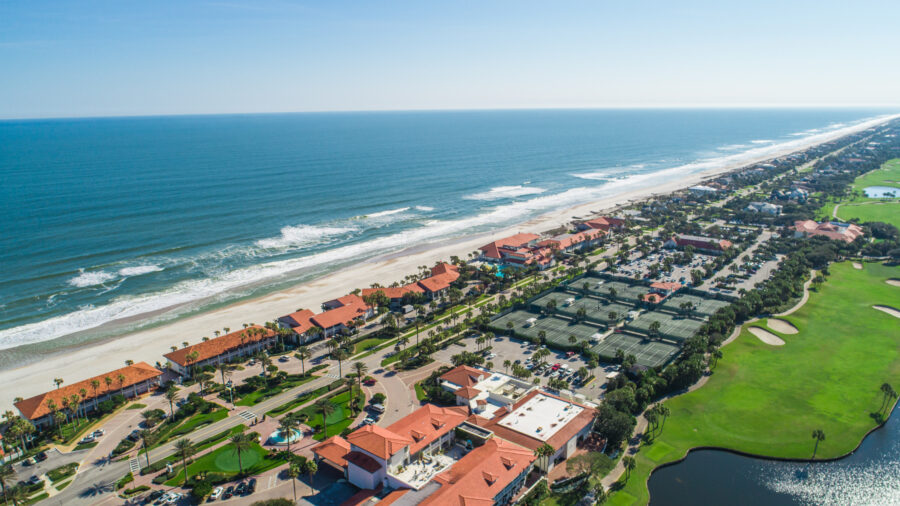
Jacksonville and Orlando present different economic profiles with unique strengths in their job markets and business sectors. Jacksonville recently earned recognition as the second hottest job market in the United States, while Orlando maintains a strong tourism-based economy.
Job Markets
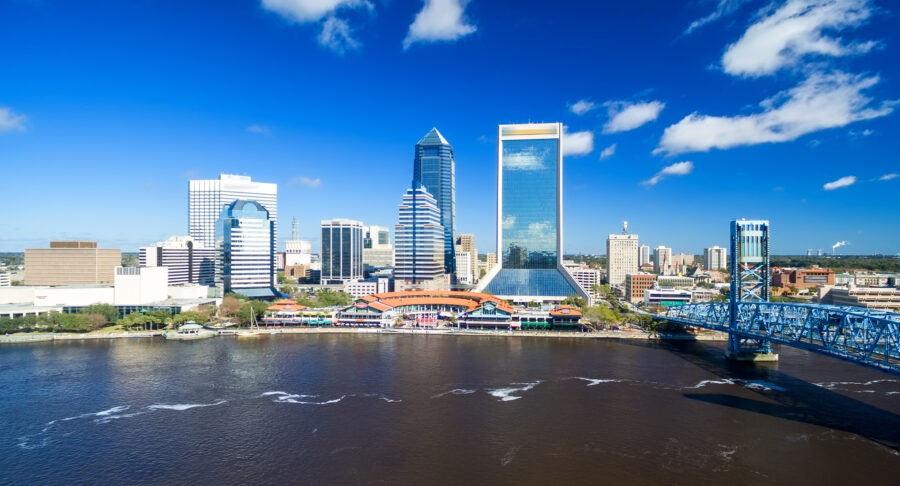
The Wall Street Journal recently ranked Jacksonville as the second hottest job market in the United States, making it the top market in Florida. This impressive ranking reflects the city’s growing opportunities and talent attraction.
Jacksonville’s unemployment rate is lower than the national average, suggesting better career opportunities and stronger economic growth than many other cities.
Orlando’s unemployment rate is 5.8%, slightly higher than Jacksonville’s. However, Orlando’s strong tourism industry continues to create thousands of jobs yearly, particularly in the hospitality and service sectors.
Household income in Jacksonville is about 1% less than in Orlando and 18% below the National Average. However, Jacksonville’s lower cost of living might offset this wage difference.
Business Opportunities
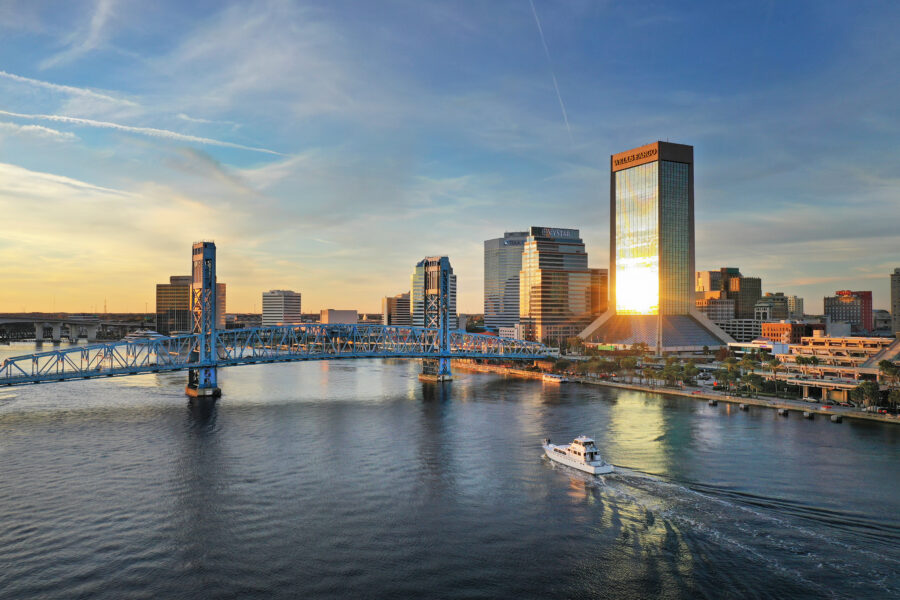
Orlando’s business landscape is dominated by tourism and entertainment, with major employers including theme parks, hotels, and restaurants. In recent years, the city has worked to diversify its economy, attracting technology companies and healthcare facilities.
Jacksonville offers a more varied business environment with strengths in financial services, healthcare, logistics, and military sectors. The city’s port facilities and transportation infrastructure create opportunities for import/export businesses and distribution companies.
Construction is booming in both cities, with Jacksonville seeing significant development in its downtown area. Orlando continues expanding its tourism infrastructure while growing residential developments to accommodate its increasing population. Both cities benefit from Florida’s business-friendly environment with no state income tax and relatively low business taxes compared to other states.
See Related: The Best Foodie Cities in the World You’ve Never Heard Of
Leisure and Recreation
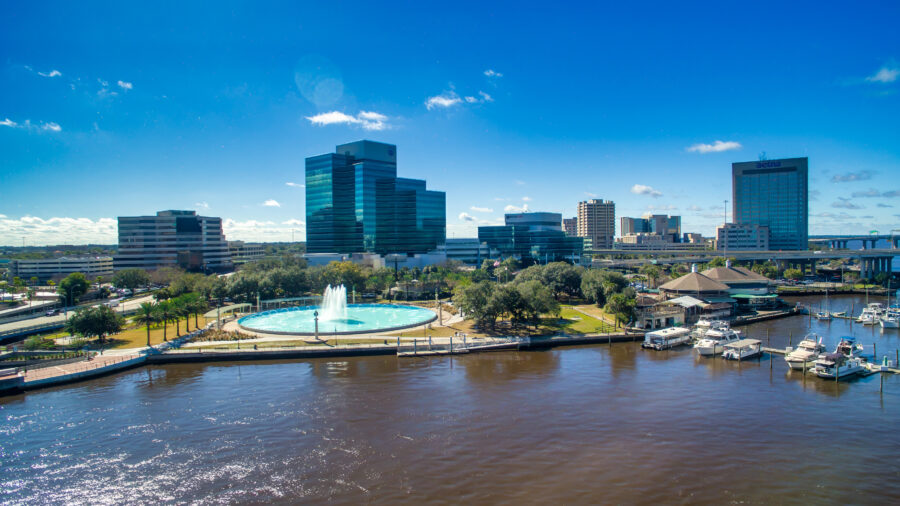
Both Jacksonville and Orlando offer fantastic leisure activities, though they differ significantly in their offerings. Orlando shines with world-famous theme parks, while Jacksonville boasts natural beauty with its beaches and outdoor spaces.
Beaches and Parks
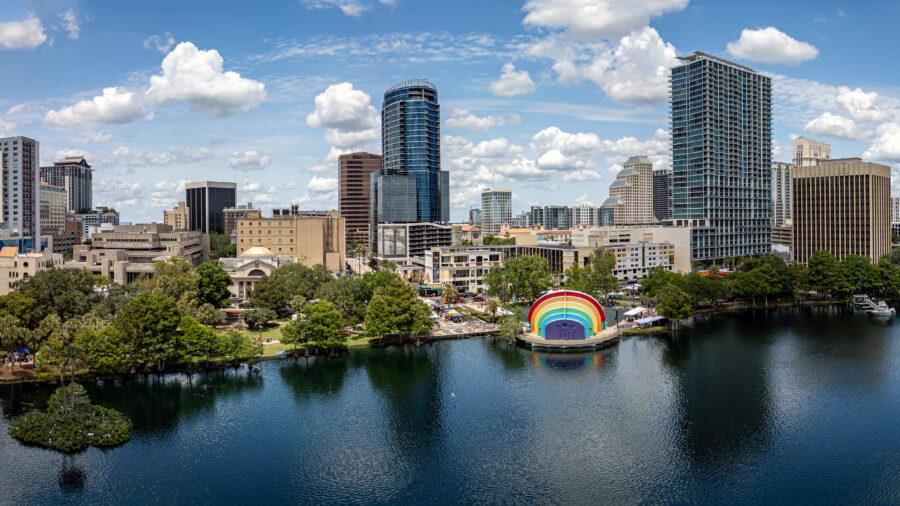
Jacksonville wins when it comes to beaches! The city offers 22 miles of gorgeous sandy shorelines, including Jacksonville, Neptune, and Atlantic Beach. These beaches are less crowded than many Florida hotspots, making them perfect for a relaxed day by the ocean.
Jacksonville also has an impressive park system with over 400 city parks and gardens. The 46,000-acre Timucuan Ecological and Historic Preserve is the crown jewel protecting wetlands and historic sites.
Despite being inland, Orlando compensates with beautiful lakes and meticulously maintained parks. Lake Eola Park in downtown Orlando is a local favorite, and visitors can rent swan-shaped paddle boats. Winter Park, just outside Orlando, offers charming green spaces and a chain of lakes perfect for boating.
Entertainment Venues
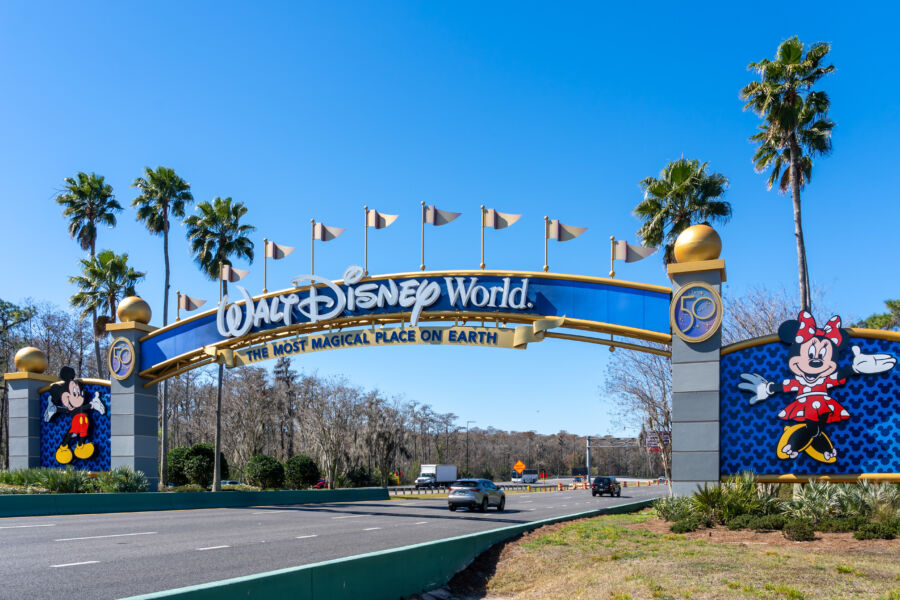
Orlando is globally known as the theme park capital of the world! Walt Disney World Resort, Universal Orlando, and SeaWorld attract millions of visitors annually. These parks offer everything from thrilling rides to immersive experiences, transporting visitors to different worlds.
The city also hosts excellent performing arts venues like the Dr. Phillips Center. Orlando’s International Drive features attractions like WonderWorks, Ripley’s Believe It or Not, and the ICON Park with its 400-foot observation wheel.
Jacksonville’s entertainment scene is more laid-back but still diverse. The Florida Theatre is a historic performing arts center that hosts concerts and shows. The city’s sports scene is vibrant with the NFL’s Jacksonville Jaguars and minor league baseball’s Jacksonville Jumbo Shrimp.
Outdoor Activities
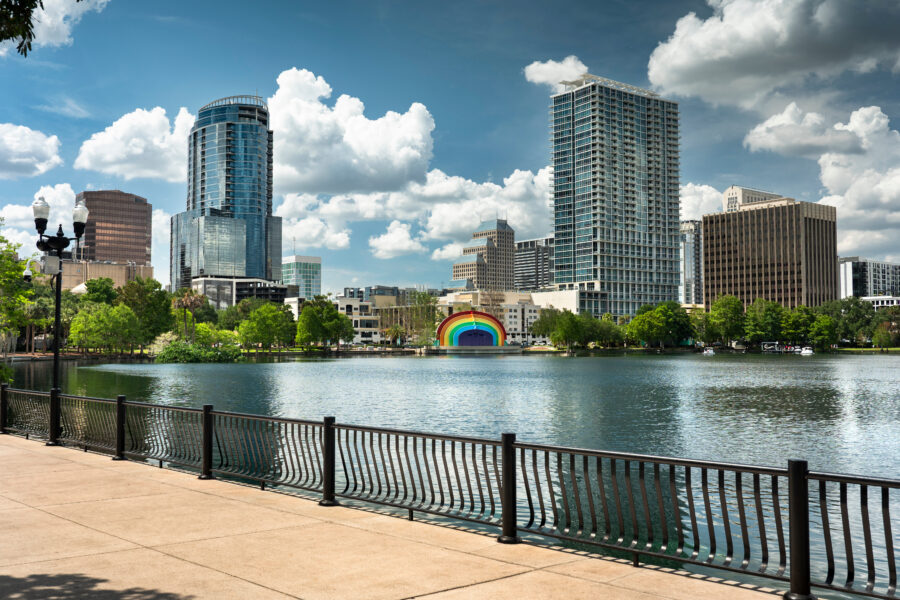
Jacksonville is a paradise for fishing enthusiasts. The St. Johns River and Atlantic Ocean provide excellent year-round fishing opportunities. Popular catches include redfish, tarpon, and kingfish.
The city’s extensive waterways make it perfect for boating, kayaking, and paddleboarding. Hikers and cyclists can enjoy the Jacksonville-Baldwin Rail Trail, a 14.5-mile paved path through peaceful woodlands.
Orlando offers different outdoor experiences with its numerous lakes, which are perfect for watersports. Wekiwa Springs State Park, just outside the city, provides crystal-clear swimming holes and canoe rentals. Orlando boasts over 150 courses for golfers, many designed by legendary players.
Eco-tourism opportunities abound, with airboat tours through nearby wetlands where visitors can spot alligators and unique Florida wildlife. Depending on your preferred activities, both cities offer distinct but equally appealing outdoor experiences.
Tourism and Attractions
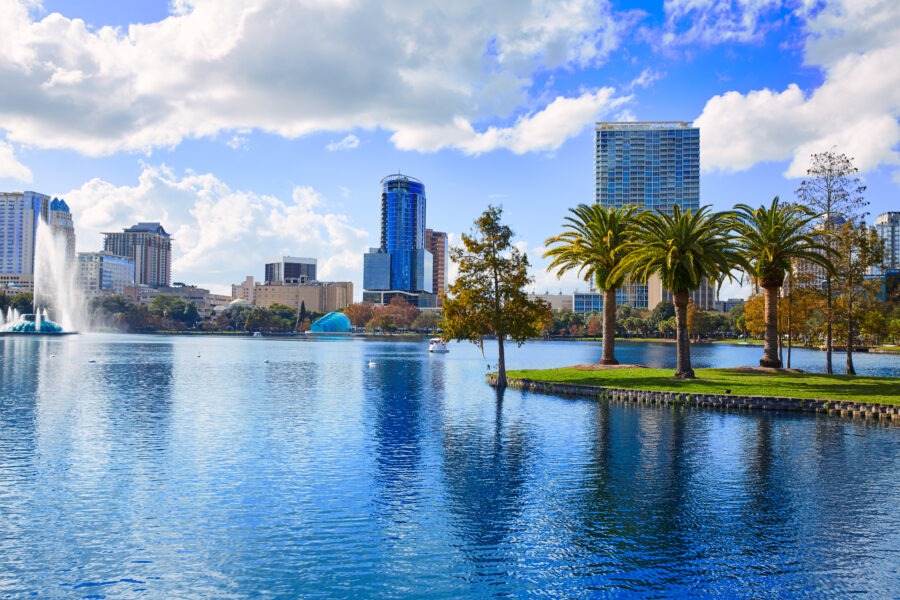
Both Jacksonville and Orlando offer unique vacation experiences with different kinds of attractions. While Orlando is world-famous for its theme parks, Jacksonville provides more local charm with museums, beaches, and cultural sites.
Theme Parks and Resorts
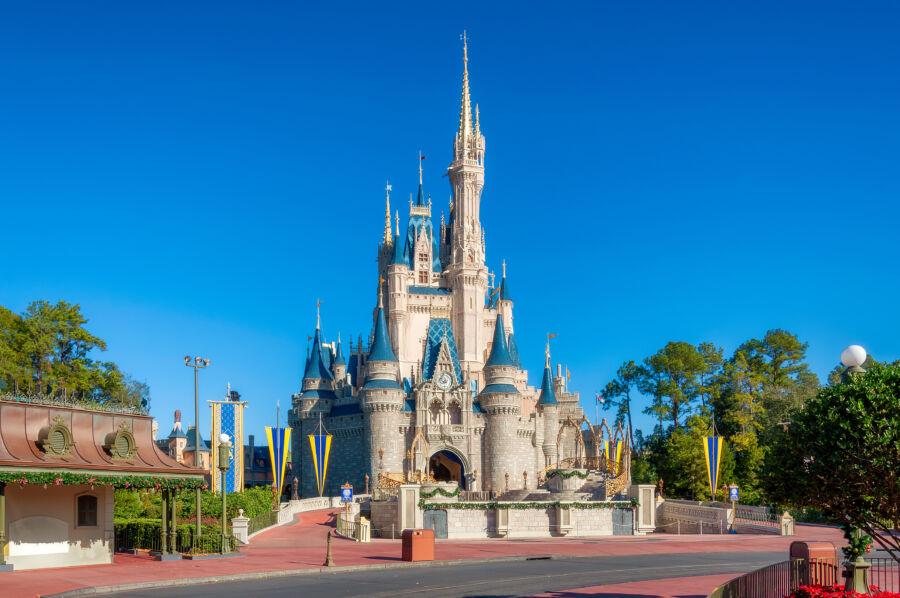
Orlando dominates when it comes to theme parks and resorts. It’s home to Walt Disney World with its four major parks, Universal Studios Orlando, which features the Wizarding World of Harry Potter, and SeaWorld. These massive entertainment complexes draw millions of visitors worldwide each year.
The resort options in Orlando are practically endless. You’ll find everything from budget-friendly hotels to luxury resorts with water parks and entertainment. Many hotels offer free shuttles to the parks, making it easy to navigate without a car.
Jacksonville can’t compete in the theme park category, but this might be a plus if you want to avoid crowds and high prices. The city has Adventure Landing, a smaller water park that local families enjoy, but it’s nowhere near Orlando’s scale.
Unique Local Attractions
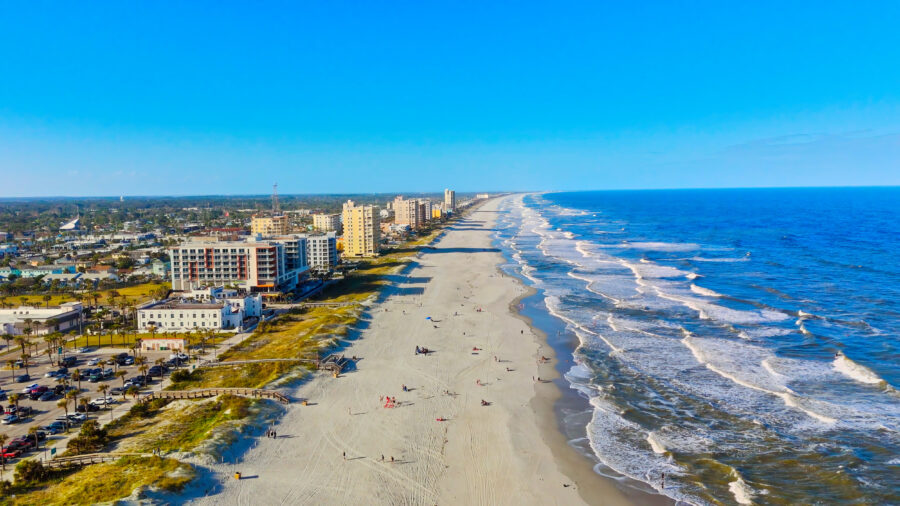
Jacksonville shines with its more authentic Florida experiences. The city boasts 22 miles of beautiful beaches, including Jacksonville Beach and Atlantic Beach. Nature lovers will appreciate the Jacksonville Zoo and Gardens, which houses over 2,000 animals and 1,000 plant species.
The Cummer Museum of Art and Gardens offers a peaceful retreat with stunning river views and art collections. Downtown Jacksonville has a growing food scene and the Jacksonville Landing marketplace.
Orlando has non-theme park attractions, too. Winter Park offers boat tours through scenic canals, while the Orlando Museum of Art provides cultural experiences. The Kennedy Space Center is about an hour away.
For travelers seeking a mix of city life and nature, Jacksonville provides a less touristy feel than Orlando’s riverside location and outdoor activities.
See Related: Most Breathtaking Places to Visit in the World (Travel Guide)
Cost of Living and Lifestyle
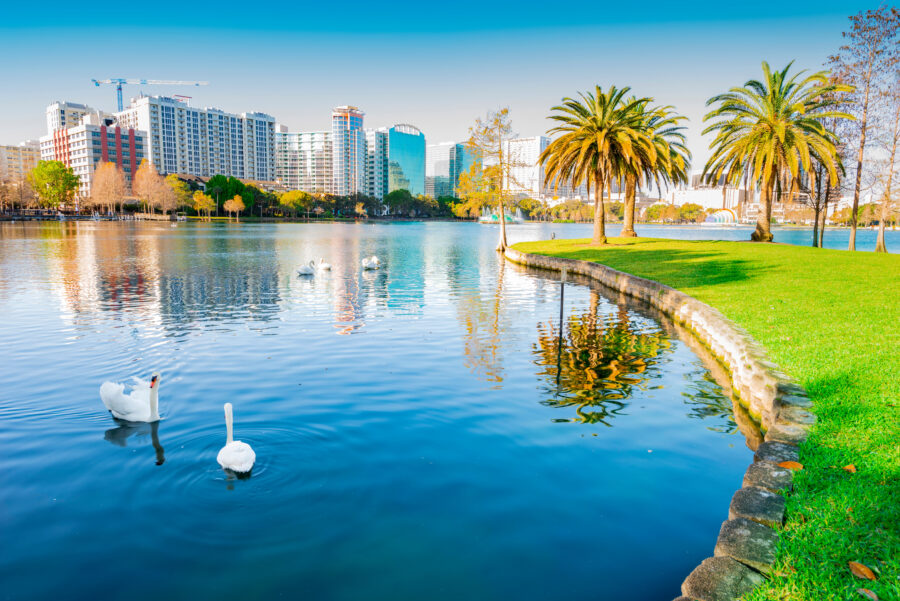
When comparing Jacksonville and Orlando, understanding the differences in cost of living can help you decide which Florida city might better suit your budget and lifestyle preferences. Orlando tends to be more expensive overall, with Jacksonville offering more affordable options in several key areas.
Housing and Real Estate
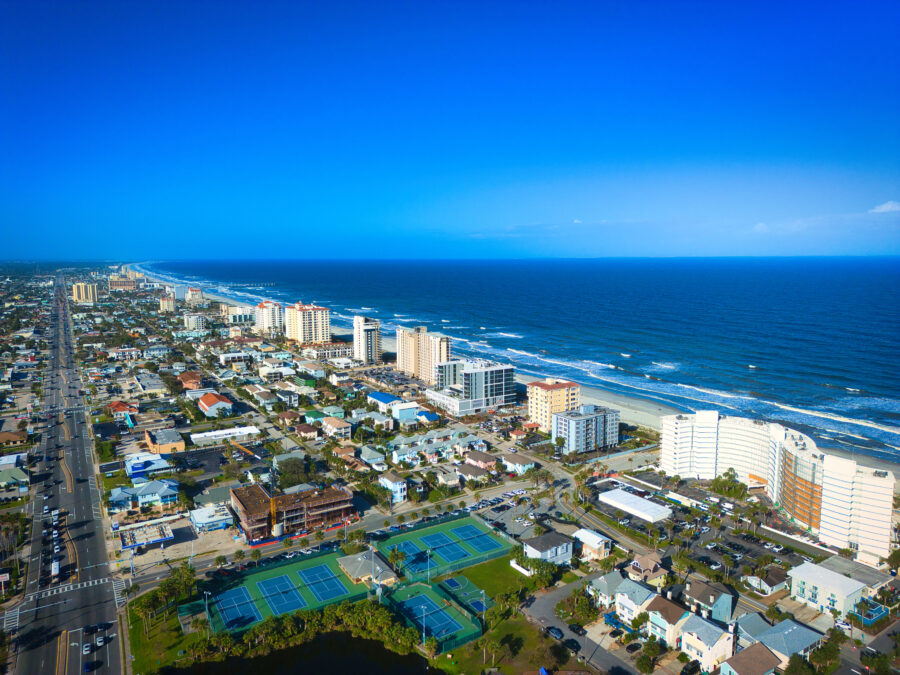
Jacksonville offers significantly more affordable housing options than Orlando. According to recent comparisons, the overall cost of living in Jacksonville is about 7-10% lower than Orlando, with housing being a major factor in this difference.
In Jacksonville, you’ll find more space for your money, with larger homes and lots available at lower price points. The median home price in Jacksonville runs about 15% less than comparable properties in Orlando.
Rental prices follow a similar pattern. A typical two-bedroom apartment in Jacksonville might cost $1,200-1,500 monthly, while similar accommodations in Orlando could run $1,400-1,800 or higher, especially closer to major attractions and employment centers. Orlando’s real estate market faces additional pressure from vacation rental investors and tourism industry employees, driving prices higher in desirable neighborhoods.
Education and Healthcare
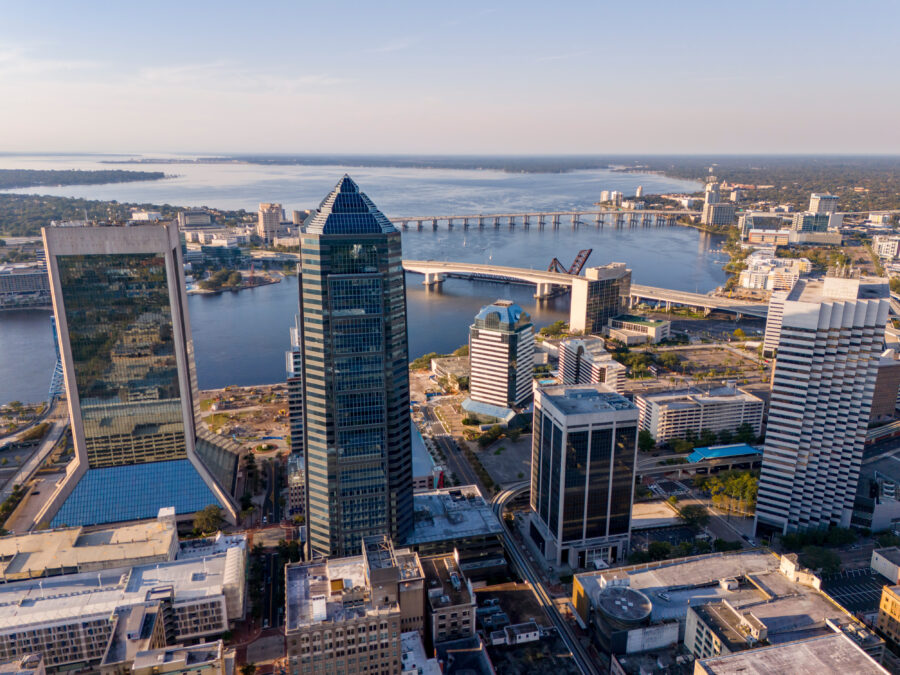
Both cities offer solid educational options, but with different strengths. Jacksonville’s Duval County Public Schools include several highly-rated magnet programs and specialized academies.
Orlando boasts excellent public schools, particularly in suburbs like Winter Park and Lake Mary. The city also has a wider selection of private school options, though they are more expensive than Jacksonville’s.
Healthcare access differs between the cities, too. Jacksonville features major medical centers like the Mayo Clinic and Baptist Health, which provide excellent specialized care. Wait times for appointments tend to be shorter than in Orlando.
Orlando’s healthcare scene centers around AdventHealth and Orlando Health systems. While quality care is available, the tourist population can strain resources during peak seasons, leading to longer wait times for non-emergency services.
Shopping and Dining
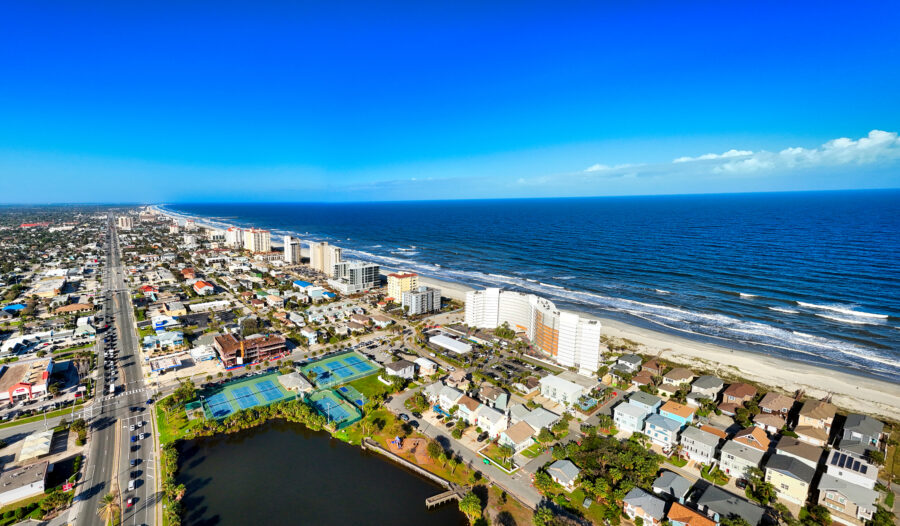
Orlando’s shopping and dining scenes benefit from the massive tourism industry. High-end malls like Mall at Millenia and Disney Springs offer luxury brands and unique shopping experiences not available in Jacksonville.
Dining out tends to be pricier in Orlando. A typical casual dinner for two averages $50-70, compared to $40-60 in Jacksonville. However, Orlando offers more diverse international cuisine options due to its global visitor base.
Jacksonville features more locally-owned establishments and neighborhood shopping centers with lower price points. The city’s growing foodie scene emphasizes fresh seafood and southern cuisine at more reasonable prices.
Both cities offer farmers markets and specialty shops, but Jacksonville’s cost advantage extends to grocery shopping, too. On average, food prices in Jacksonville are about 5% lower than in Orlando.
Transportation and Mobility
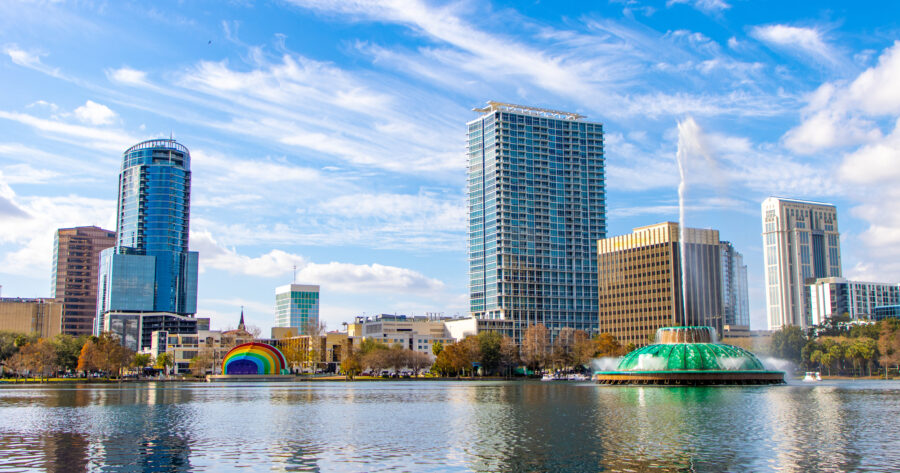
Getting around is a major factor when comparing Jacksonville and Orlando. Both cities have distinct transportation systems and traffic patterns that significantly impact daily life for residents and visitors alike.
Public Transportation
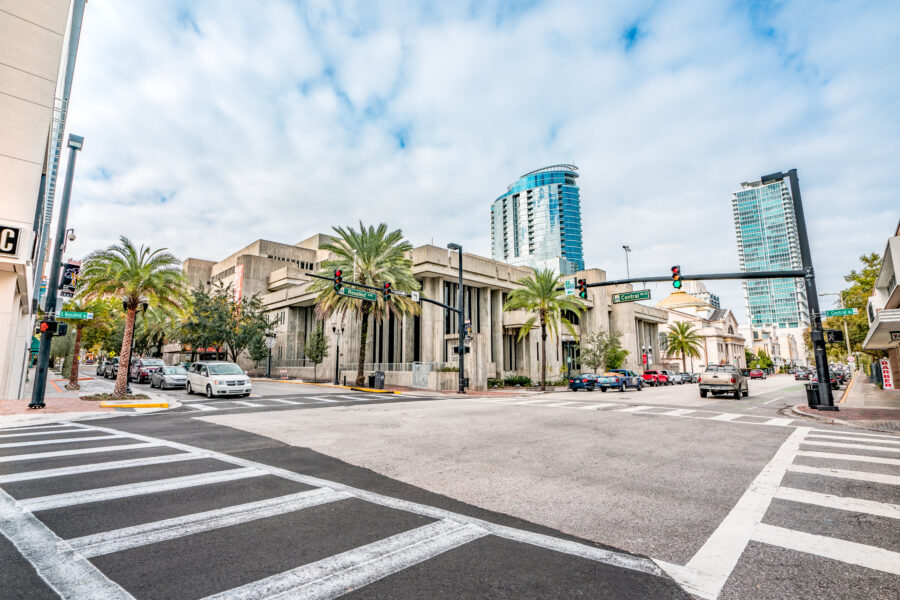
Jacksonville’s public transit system is operated by the Jacksonville Transportation Authority (JTA). It includes bus routes throughout the city and the Skyway, a free automated people mover serving downtown. The Skyway is limited, though, covering just 2.5 miles – not nearly enough for this sprawling city.
Orlando offers more diverse public transportation options. LYNX bus service covers Orange, Seminole, and Osceola counties with over 75 routes. The SunRail commuter train connects northern suburbs to downtown Orlando. I-Ride Trolley serves the tourist areas along International Drive.
Neither city has extensive subway or light rail systems like larger metros. Jacksonville residents rely more heavily on cars, with public transit mainly serving commuters. Orlando’s tourist economy has pushed for better transit options in attraction areas, making it slightly more accessible for visitors without cars.
Roads and Highways
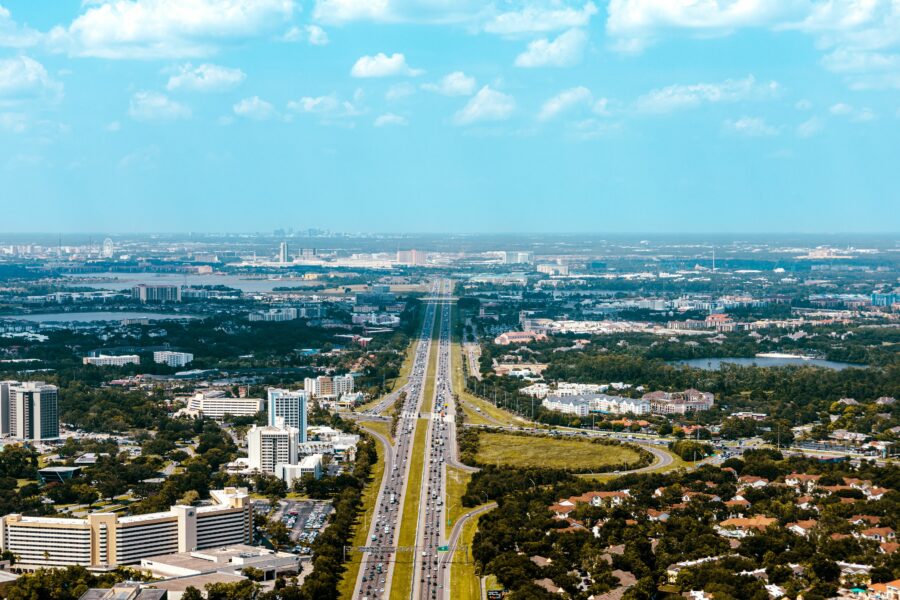
Jacksonville boasts an extensive highway network, including I-95, I-10, and I-295 (the beltway). The city’s spread-out nature means less concentrated traffic, though bottlenecks occur at the seven bridges crossing the St. Johns River. Rush hour congestion is moderate compared to other Florida cities.
Orlando’s road system faces greater challenges with tourist traffic mixing with commuters. I-4, the main artery running through Orlando, is notorious for congestion and accidents. According to the search results, suburban areas in Orlando can have up to 19 times higher transportation risk for pedestrians than downtown areas.
Both cities require cars for comfortable living, but Jacksonville’s layout demands more driving for everyday errands. Orlando’s tourist districts have more walkable areas, especially around theme parks and International Drive, though the residential areas remain car-dependent.
See Related: The Top Vacation Spot in the World: Discover the Ultimate Destination
Frequently Asked Questions
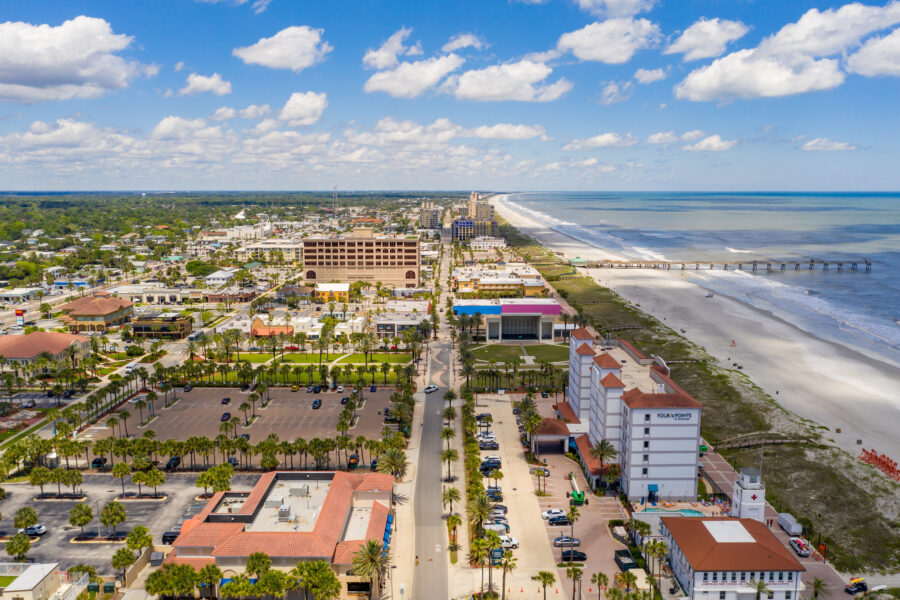
Jacksonville and Orlando offer different lifestyles, costs, and opportunities for residents. These key differences impact everything from daily expenses to career potential and quality of life.
What factors contribute to the difference in cost of living between Jacksonville and Orlando?
Housing costs play a major role in the cost difference between these cities. Jacksonville’s median home prices tend to be 15-20% lower than Orlando’s, giving residents more buying power.
Jacksonville also charges about 5-7% less for everyday expenses like groceries and utilities. The lack of tourist-focused price inflation keeps costs stable year-round.
Transportation costs differ, too. Jacksonville’s more spread-out nature means residents typically drive more, but Orlando’s traffic congestion can lead to higher fuel consumption despite shorter distances.
How do the crime rates in Jacksonville compare to those in Orlando, and how does this impact residents?
Jacksonville has historically had higher overall crime rates than Orlando, particularly for property crimes. However, both cities have safe neighborhoods and areas with higher crime.
Crime statistics vary widely by neighborhood in both cities. Places like Riverside in Jacksonville and Winter Park in Orlando consistently report lower crime rates than their city averages.
The perception of safety impacts housing prices, with safer neighborhoods commanding premium prices in both cities. Many residents choose suburban communities in both areas specifically for lower crime rates.
How do Jacksonville and Orlando differ regarding job opportunities and economic growth?
Jacksonville offers a more diverse job market with strengths in healthcare, finance, logistics, and military sectors. Major employers include the Mayo Clinic, Bank of America, and Naval Air Station Jacksonville.
Orlando’s economy revolves heavily around tourism and hospitality, though it’s growing in technology and healthcare. Disney World, Universal, and Orlando Health create thousands of jobs.
Salary levels tend to be similar, but Jacksonville’s lower cost of living means your money goes further. Job stability in Jacksonville is less susceptible to tourism downturns that can affect Orlando.
Can you describe the cultural and entertainment distinctions that set Jacksonville apart from Orlando?
Jacksonville offers miles of beautiful beaches and waterfront activities that Orlando lacks. The St. Johns River and Atlantic Ocean provide boating, fishing, and water sports settings.
The arts scene in Jacksonville centers around the Cummer Museum of Art and the Museum of Contemporary Art. The city hosts events like the Jacksonville Jazz Festival and Art Walk.
Local dining in Jacksonville focuses more on seafood and Southern cuisine. Neighborhoods like San Marco and Five Points offer eclectic dining options without the tourist crowds.
What are the advantages of choosing a 55-plus community in Jacksonville over Orlando?
Jacksonville’s 55-plus communities typically offer more affordable homes and lower HOA fees than comparable Orlando properties. Your retirement dollars stretch further here.
The less congested atmosphere in Jacksonville provides a more relaxed lifestyle. Seniors enjoy easier driving conditions and less traffic when running errands or visiting amenities.
Many Jacksonville senior communities sit closer to beaches and waterfront activities. Communities like Del Webb Ponte Vedra and Fleet Landing offer ocean-adjacent living options.
Which city, Jacksonville or Orlando, offers young professionals a higher quality of life?
Young professionals in Jacksonville benefit from shorter commute times and less traffic congestion. The average commute is about 24 minutes, versus Orlando’s 32 minutes.
The cost of rental housing favors Jacksonville, with one-bedroom apartments averaging $300-400 less per month than Orlando. This allows young professionals to save more.
Jacksonville offers vibrant neighborhoods like Riverside and San Marco. Here, young professionals can find walkable areas with local restaurants, bars, and shops without the tourist crowds.

